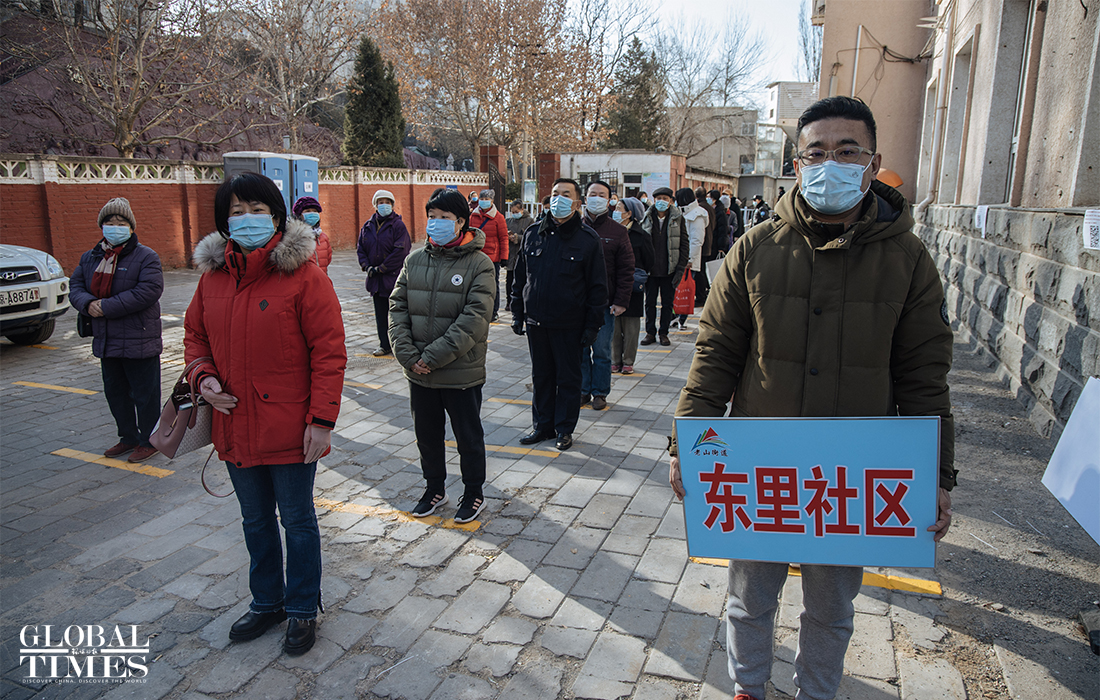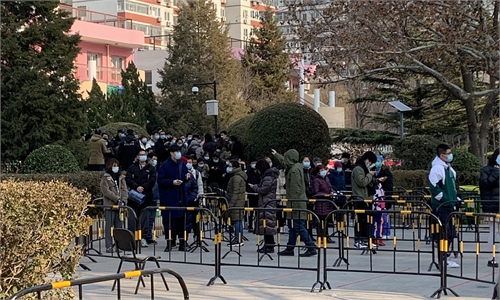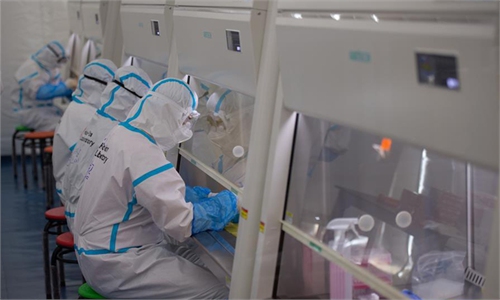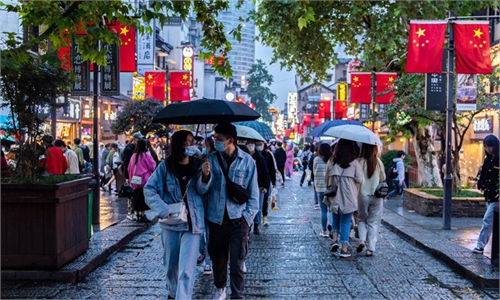
Photo: Li Hao/GT
Senior Beijing officials have ordered all of the municipality's districts, departments and companies to enter into a state of emergency to deal with the sporadic COVID-19 cases with a more resolute attitude and more stringent measures as the city has so far reported 13 cases in three districts, the source of which is still unknown.Communities and villages where confirmed cases were reported are under close management. New recruits in the catering industry and supermarkets will be required to undergo nucleic acid testing before they start work from now on, Beijing officials announced at a press conference on Sunday.
Since December 23, Shunyi district in northern Beijing has launched free nucleic acid testing in the 13 townships and sub-districts it administrate, planning to test 800,000 people. The district has been in a "wartime" mode since Friday. Two villages in the district were upgraded to areas with medium risk on Sunday.
With sporadic cases related to Beijing's Chaoyang district appearing as well, Chaoyang district has tested more than 234,000 people, particularly in the three sub-districts of Wangjing, Donghu and the Beijing Capital International Airport.
City officials said that temple fairs and other cultural activities should not be held during the upcoming New Year holidays and they advocated travel agencies and online tourism enterprises not to organize tour groups into Beijing. Inbound and outbound tourism will continue to be suspended.
Public venues such as theme parks and churches have scaled back their operating hours. Some churches in Beijing, including the Catholic Church in downtown Wangfujing, have stopped admitting churchgoers and halted group activities. Beijing's largest amusement park, Happy Valley, announced it will close at night from Monday, and its New Year's Eve event will be canceled as well. Baiyunguan or the White Cloud Taoist Temple in Beijing, the largest Taoist temple in North China, closed since Saturday.
During the upcoming festivals, the number of visitors to Beijing's park scenic areas and indoor public places will be limited to 75 percent of their normal capacity, according to the press conference.



